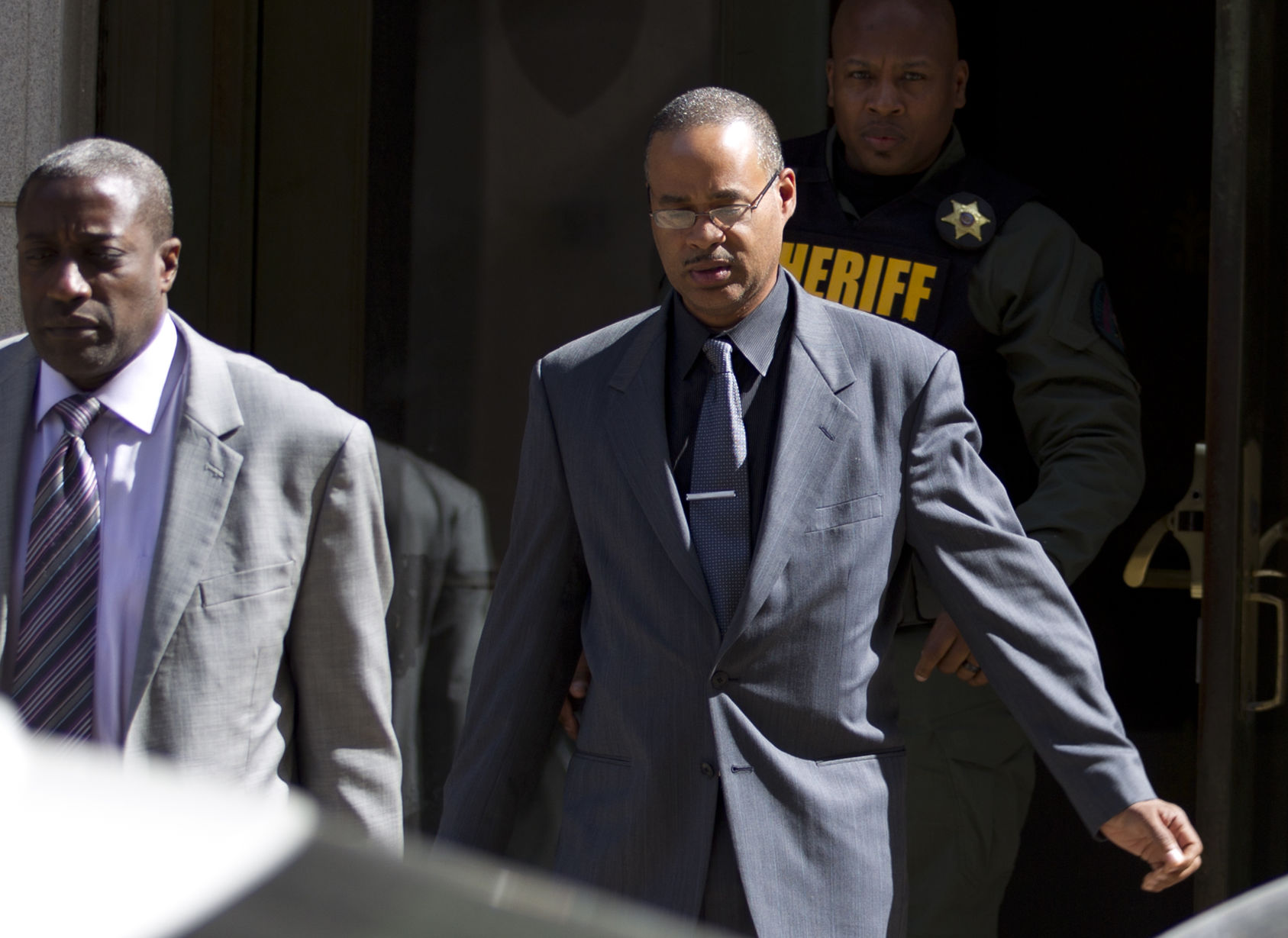BALTIMORE (AP) — The police officer who prosecutors once said was most responsible for the in-custody death of a black man in Baltimore will appear Monday before a disciplinary board that will determine whether or not he should be fired.
BALTIMORE (AP) — The police officer who prosecutors once said was most responsible for the in-custody death of a black man in Baltimore will appear Monday before a disciplinary board that will determine whether or not he should be fired. It is the final effort to hold the officer accountable for the death of Freddie Gray, the 25-year-old man critically injured during a police van ride.
Gray was handcuffed and shackled, but left unrestrained by a seat belt, during the nearly 45-minute ride from his arrest site to the police station. Caesar Goodson was the van’s driver. He was acquitted of murder and other charges last year.
THE BACKGROUND
On April 12, 2015, Gray was arrested after running from officers near the Gilmor Homes projects. He was ultimately caught, handcuffed and put into a transport wagon, with Goodson at the wheel. The van made a stop shortly after, and Gray was put in leg irons but never buckled into a seat belt.
Over the next 45 minutes, the van made several stops, during which Gray indicated that he needed to go to a hospital. Instead, the wagon continued to the Western District station house. By the time Gray arrived, he was unresponsive. He died a week later from a critical spinal cord injury.
Six officers were charged in Gray’s death. Goodson faced the most serious charge: murder.
Goodson, Officer Edward Nero and Lt. Brian Rice were acquitted at trial last year.
After the acquittals, prosecutors dropped the charges against the remaining three officers, Sgt. Alicia White, and officers Garrett Miller and William Porter.
The Baltimore Police Department asked investigators from the Montgomery and Howard County police departments to conduct the internal investigations and all but Porter faced discipline ranging from suspensions to termination.
Nero and Miller recently accepted disciplinary action, according to the police union attorney who represents them. Neither their attorney nor the department would say what kind of discipline they faced.
WHAT HAPPENS AT THE HEARING?
An administrative hearing is like a regular trial, except instead of a judge, an administrative trial board, made up of two members of the Baltimore Police Department and one outside chair, ultimately decides whether an officer should be disciplined, and what the punishment will be. The hearing will focus on whether the officer in question violated department policies and procedures. Unanimity is not required to find an officer guilty, and there’s no specific time frame in which that decision has to be made.
Goodson’s hearing is expected to last up to five days.
A new state law passed after Gray’s death means the proceedings will be open to the public.
The prosecution and defense may call witnesses — including some of the other officers involved — and present physical evidence.
WHAT WE’LL KNOW — AND WHAT WE WON’T KNOW
The proceeding will likely focus on what the officers did — and did not do —during Gray’s arrest and transport to the police station. At the criminal trial, prosecutors argued that in neglecting to buckle Gray into a seat belt and failing to take him to a hospital, the officers’ didn’t follow department procedures and that their inaction amounted to a crime.
In the disciplinary hearing, the burden of proof will not be as high as the criminal trial. Prosecutors will need to show the officers were aware of department policies, including a requirement that a prisoner must be buckled into a seat belt and taken to a hospital if they complain about injuries.
Even though the proceeding will be public, the outcome won’t be. The verdict and any punishment are considered “personnel records,” and therefore barred from being publicly released, police spokesman Capt. Jarron Jackson said.
General disciplinary statistics are published on the department’s website.
According to those stats, of the 65 times officers have been administratively charged in 2017, only seven resulted in hearings. Roughly 78 percent of those charged accepted punishment.


